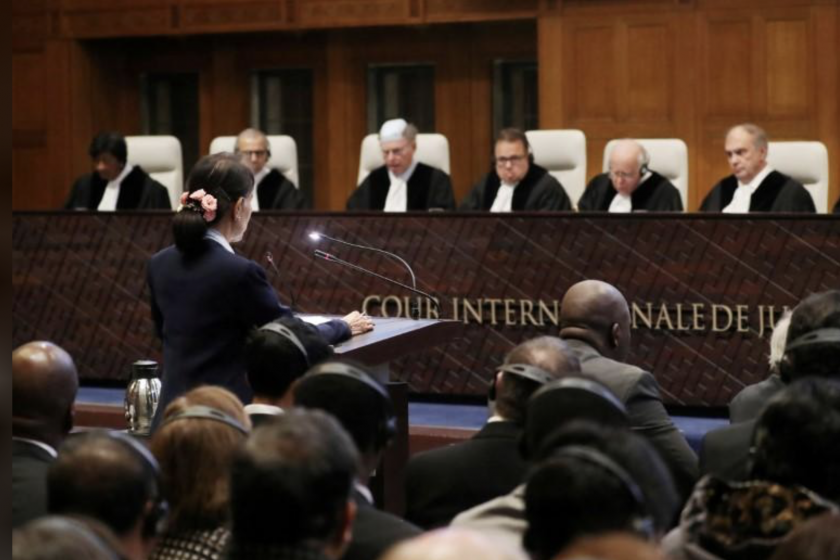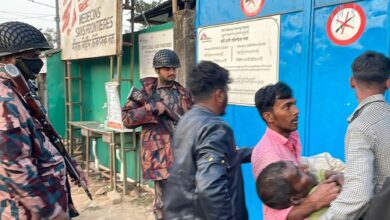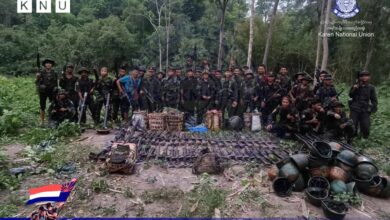
Myanmar has until tomorrow to submit a report to the United Nation’s highest court detailing what it is doing to protect the mostly Muslim Rohingya minority from genocide.
The International Court of Justice (ICJ) ordered the report, the first of many, as part of “provisional measures” at the start of a trial that is expected to take years.
It made the ruling after The Gambia accused Myanmar of genocide following mass rapes and killings against the Rohingya that forced over 730,000 to flee to Bangladesh in 2017.
In response to this case, the government and the military are taking slightly different, but equally flawed, approaches.
The government has tried to feed people inside Myanmar a nationlist narrative about the need to fight “terrorists” while presenting itself abroad as diplomatic and reasonable.
The military, meanwhile, is brazenly continuing its attacks in Rakhine but pursuing sham accountability against soldiers who have been caught red-handed abusing civilians.
Both are attempts to appease the international community by giving the appearance of cooperation, and neither is a genuine effort to take this opportunity to right the injustices done to the Rohingya and other minority groups.
The ICJ has no mandate to enforce any judgements it eventually makes. But it is significant that this is the first time Myanmar has been brought to a UN court, despite committing similar abuses in other ethnic states during seven decades of civil war.
‘War crimes’ in Rakhine
In her last statement as the UN human rights envoy for Myanmar, Yanghee Lee highlighted abuses in Rakhine and Chin States by the Tatmadaw in its fight with the Arakan Army (AA), which intensified in early 2019.
She said these were possible “war crimes and crimes against humanity.”
Since April, at least 47 civilians including young children have been killed and close to 80 civilians have been injured. Last week, residents in Mrauk-U township reported 194 houses and a school had been burned down in an abandoned village.
Earlier this month a viral video showed Tatmadaw troops viciously beating five handcuffed Rakhine civilians, who they accused of being AA members. Soldiers punched, slapped, kicked and stepped on the men, who also had their faces covered. All simply because they were Rakhine.
A Tatmadaw spokesperson promised to investigate and take action against the soldiers in the video. This move appears to be a typical example of the military scapegoating lower ranking members for abuses that are widespread, and for which culpability goes right to the top.
Torturing civilians in conflict areas is an institutional strategy and part of the Tatamdaw’s four-cuts counterinsurgency policy. The goal is to cut off food, funds, intelligence and popular support for insurgent armed groups.
The Tatmadaw’s apparent willingness to investigate this case may be linked to the approaching deadline for reporting to the ICJ.
If the soldiers who tormented and abused those men ever go on trial, it will undoubtedly take place behind closed doors, as others have in the past, with no way to monitor the process.
Aung San Suu Kyi’s two faces
When a driver for the World Health Organization was shot dead in Rakhine last month, it invited yet another round of international condemnation of the conflict.
At the time, two different departments run by State Counsellor Aung San Suu Kyi published two public statements with different messaging. The State Counsellor’s office issued a Burmese language statement condemning the “terrorist” AA for causing destruction with its activities. The statement also congratulated the Tatmadaw for its “bravery” in trying to bring peace and stability to the region.
The English statement, issued by the Ministry of Foreign Affairs, left out the part that condemned the AA and praised the Tatmadaw, adopting instead a more diplomatic tone by offering condolences to the driver’s family and the UN.
The President’s office also put together a team to investigate the killing. But any hope this would be impartial was dashed when its spokesperson told a press conference on May 1: “We are only conducting this investigation to provide information to the international community that we already know. The AA is responsible for it.”
In response to conflict in Rakhine and Chin states, the UN Security Council hosted a private briefing last week with the Secretary General’s special envoy Christine Burgener. The Secretary General has called for worldwide ceasefires in response to the Covid-19 pandemic, but the Tatmadaw has dismissed the suggestion.
Rejecting divide and rule
The sad truth is that whatever Myanmar presents in its first ICJ compliance report, their actions will speak louder than words.
The government lacks a strategy to improve the human rights situation and to lead the country into a genuine democratic transition. The Tatmadaw is unwilling to own up to its past abuses and stop its current violations. Those two things together spell yet more disaster for Myanmar.
As the UN Lee reminded us in her outgoing statement: “Having faced no accountability, the Tatmadaw continues to operate with impunity… Their alleged crimes must be investigated in accordance with international standards, with perpetrators being held accountable.”
One thing Lee did during her term was to encourage others to pay attention to the plight of all of Myanmar’s ethnic groups, even as global attention was focused squarely on the Rohingya.
Whenever Lee gave a speech about the Rohingya, she would be sure to remind her audience that other groups across Myanmar have faced the same atrocities for generations. This approach encouraged many ethnic activists to be more open to understanding the Rohingya’s situation.
Lee understood that the Tatmadaw depends on dividing up different parts of Myanmar’s population and turning them against one another.
One of the most powerful tools oppressed communities have is solidarity, and that starts with the recognition that the vast majority of human rights abuses we face across the country are committed by the same perpetrator.
Stella Naw is a human rights activist who writes about peace and conflict in Myanmar. The views expressed in this article are those of the author and do not necessarily reflect Myanmar Now’s editorial stance.



